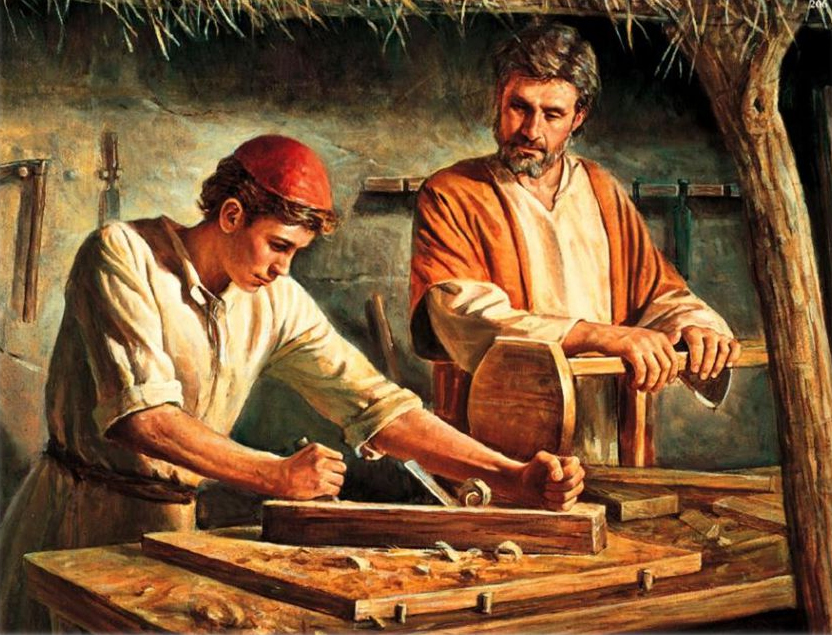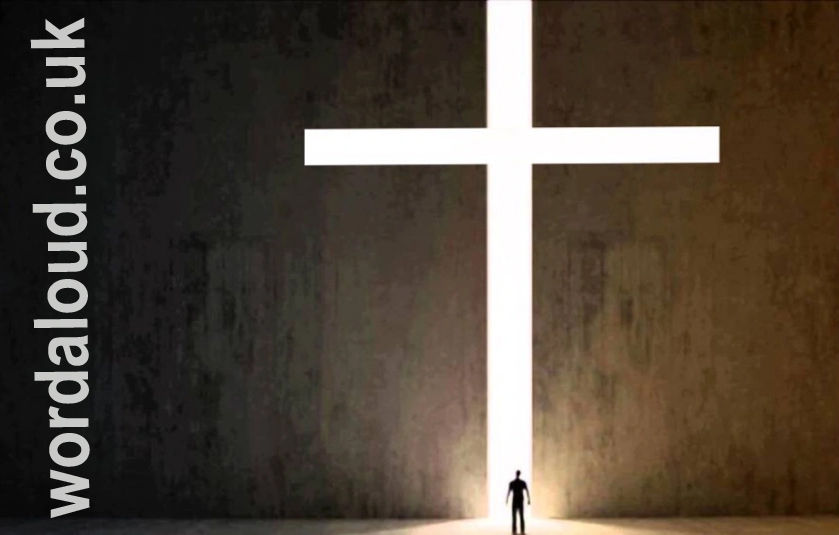Christian Art | Do Not Swear At All | Sermon On The Mount
Matthew 5: 33-37 – Week 10 Ordinary Time, Saturday (King James Audio Bible KJV, Spoken Word)
33 ¶ Again, ye have heard that it hath been said by them of old time, Thou shalt not forswear thyself, but shalt perform unto the Lord thine oaths:
34 But I say unto you, Swear not at all; neither by heaven; for it is God’s throne:
35 Nor by the earth; for it is his footstool: neither by Jerusalem; for it is the city of the great King.
36 Neither shalt thou swear by thy head, because thou canst not make one hair white or black.
37 But let your communication be, Yea, yea; Nay, nay: for whatsoever is more than these cometh of evil.
In Jesus’ time, the swearing of oaths was common, and the casuistry surrounding such oaths was intricate. There were what we would now term loopholes – ‘perfectly’ legal ways of doing wrong. The letter of the Law, rather than the spirit, had proliferated – the whole of the Sermon on the Mount concerns this subject – and thereby our knowledge of the will of God had been deliberately obscured.
Jesus, therefore, takes the Law of Moses concerning oaths (cf. Exodus 20:7, Numbers 30: 3, Deuteronomy 23: 22) and develops it, in order to strip away such accretions, to purify the Law, such that we may live according to God’s intentions.
Rather than mock God, by swearing in his name with regards to what might be relatively trivial matters, and then perhaps calling upon our inner lawyer to deny that we ever swore any such thing, Jesus tells us not to swear at all. This constitutes one more stripping away of the divisions between ourselves and God. The swearing of oaths was an easy lie; through the removal of such verbiage, we discover ourselves, more fully exposed, and open, to God.
It is now that we have honesty. Jesus has told us not to be so pretentious as to swear oaths. Jesus has also insisted we consider again just what we were swearing by: heaven and earth, the throne and the footstool of God. Rather than seek to appropriate God’s creation for our own callow ends, we are taught to respect God.
Jesus seems to suggest that we cannot swear by things over which we have absolutely no control. Heaven and earth are completely beyond us, and then so too are the hairs on our head! Jesus seems to say that to swear by something is to appropriate it, to claim what is not ours as property. To swear is, therefore, to lie.
Rather than do thusly, we are called by Jesus, when we are tempted to swear an oath, instead to pause and take a moment to think of ourselves and to think of God – to remember God. When we do this, we are recalled to a compelling relationship with truth and justice. Now there is no need to ‘protest too much’. We are with God, we are with Jesus, and absolute honesty flows thereby. Rather than swear, ‘yes’ or ‘no’ will suffice.
‘Thus saith the Lord, Stand ye in the ways, and see, and ask for the old paths, where is the good way, and walk therein, and ye shall find rest for your souls.’ Jeremiah 6: 16.
Concluding Prayer
Let us praise you, Lord,
with voice and mind and deed:
and since life itself is your gift,
may all we have and are be yours.
We make our prayer through our Lord.

![]()
King James Audio Bible | Endnotes
Do Not Swear At All
Jesus gives a commandment to his followers: ‘Swear not at all; neither by heaven; for it is God’s throne: Nor by the earth; for it is his footstool: neither by Jerusalem; for it is the city of the great King.’
This passage is often interpreted as a commandment against making oaths.
Is Jesus actually forbidding all forms of swearing? The commandment not to swear at all is a radical departure from traditional Jewish law, which allowed for oaths in certain circumstances. In fact, the use of oaths had become so common in Jewish society that people were using them frivolously, often without any intention of keeping them. An interpretation is that Jesus’ commandment is meant to reorient the disciples’ priorities and to emphasize the importance of truth-telling.
One of the reasons why Jesus commands his followers not to swear is because of the power of words. Words have the power to create reality, and the act of swearing can create an obligation that may not have existed before. Swearing also carries with it the implication that the speaker’s normal word cannot be trusted, and that an oath is needed to guarantee the truth of what is being said. By contrast, Jesus wants his followers to be known for their integrity and honesty, and to speak truthfully in all circumstances.
The Catholic Church has traditionally interpreted Jesus’ commandment as a call to avoid all forms of falsehood and deception, including lying and perjury. Saint Thomas Aquinas argued that swearing was only necessary in certain situations, such as when giving testimony in court, and that even then it should only be used sparingly. He wrote: ‘It is always wrong to swear to what is false, and it is a sin to swear to what is true unnecessarily.’ (Summa Theologica, II-II, Q. 89, A. 1) Saint Augustine wrote in his work On Lying that ‘It is one thing to swear in order to put an end to strife, and another to swear to maintain falsehood’ (Ch. 19).
Protestant theologians have grappled with the meaning of Jesus’ commandment. Some, like John Calvin, have argued that Jesus was not prohibiting all forms of swearing, but was instead targeting the misuse of oaths. Calvin believed that Jesus was concerned with the common practice of taking oaths lightly and without any intention of keeping them. Other Protestant theologians, like Karl Barth, have emphasized the radical nature of Jesus’ commandment. Barth argued that Jesus was calling his followers to a higher standard of honesty and integrity than had ever been seen before. He wrote: ‘The commandment not to swear at all is a clear and unequivocal statement of the fact that in the kingdom of God there is no longer any place for human assertions or guarantees.’ (The Epistle To The Romans, p. 349)
In contemporary Christian thought, some Christians argue that Jesus’ words are only applicable to specific cultural and historical contexts, and that oaths are not inherently sinful. Others see Jesus’ commandment as a call to live a life of honesty and transparency regardless of the cultural or historical context. This means being truthful in all situations, and avoiding any kind of deception, whether it involves making oaths or not.
One challenge in interpreting Jesus’ commandment not to swear is the fact that the Bible itself contains many examples of people making oaths. In the Old Testament, for example, God often makes oaths to his people, and Abraham and Jacob both swear oaths with God. In the New Testament, the apostle Paul frequently uses oaths in his letters.
We may understand that the commandment not to swear at all is a call to live a life of radical honesty and integrity. It challenges Christians to speak truthfully in all circumstances, and to avoid any kind of deception or falsehood. This is not always easy, especially in a world where dishonesty and deception are often rewarded.








